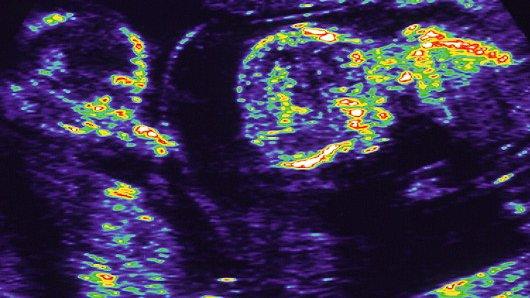Same genes 'drive maths and reading ability'
- Published

Twins at High School
The same genes drive maths and reading ability, research suggests.
Around half of the genes that influence a child's aptitude for reading also play a role in how easily they learn maths, say scientists.
The study of 12-year-old British twins from 3,000 families, reported in Nature Communications, external, adds to the debate about the role of genes in education.
An education expert said the work had little relevance for public policy as specific genes had not been identified.
Past research suggests both nature and nurture have a similar impact on how children perform in exams.
One study found genes explained almost 60% of the variation in GCSE exam results.
However, little is known about which genes are involved and how they interact.
'Not set in stone'
The new research suggests a substantial overlap between the genetic variations that influence mathematics and reading, say scientists from UCL, the University of Oxford and King's College London.
But non-genetic factors - such as parents, schools and teachers - are also important, said Prof Robert Plomin of King's College London, who worked on the study.
"The study does not point to specific genes linked to literacy or numeracy, but rather suggests that genetic influence on complex traits, like learning abilities, and common disorders, like learning disabilities, is caused by many genes of very small-effect size," he said.
Children differ genetically in how easy or difficult they find learning, and these individual differences need to be recognised and respected, he explained.
"Finding such strong genetic influence does not mean that there is nothing we can do if a child finds learning difficult," he added.
"Heritability does not imply that anything is set in stone - it just means it may take more effort from parents, schools and teachers to bring the child up to speed."
'Limitation'
The study adds to the debate about the role of genes in children's educational attainment, said Dr John Jerrim of the Institute of Education.
But he said the "key limitation" was that the authors "cannot (and do not) tell us which genes are actually thought to influence children's reading and maths ability".
"Until researchers are able to identify the specific genes that are thought to influence children's reading and math skills, and show that such associations are robust in numerous academic studies, then such work has little relevance for public policy," he said.
- Published3 February 2011
- Published12 December 2013
